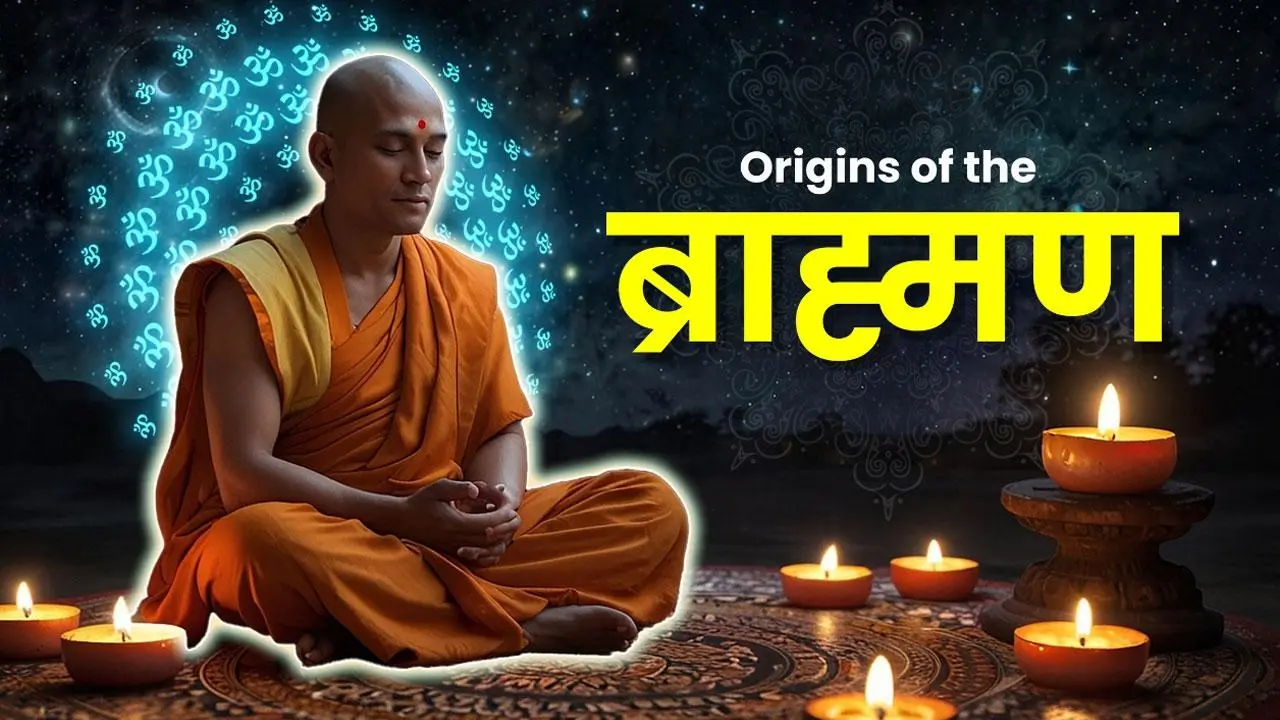This day now stands for a shared human journey-rooted in jñāna (knowledge), dharma (righteousness), and seva (service)-across caste, creed, and community.

Vishwa Brahmin Diwas
June 1, observed as Vishwa Brahmin Diwas, has evolved over time into more than just a celebration of a single community. It has become a reflective moment for all communities across India and beyond-a time to honor the legacy of spiritual seekers, knowledge-bearers, and cultural custodians who have shaped the moral and intellectual fabric of the subcontinent.
June 1, observed as Vishwa Brahmin Diwas, has evolved over time into more than just a celebration of a single community. It has become a reflective moment for all communities across India and beyond-a time to honor the legacy of spiritual seekers, knowledge-bearers, and cultural custodians who have shaped the moral and intellectual fabric of the subcontinent.
What began as a recognition of the Brahmin community's traditional role in preserving knowledge now embraces a deeper, more inclusive contemplation. This day now stands for a shared human journey-rooted in jñāna (knowledge), dharma (righteousness), and seva (service)-across caste, creed, and community.
Ancient India: The Seed of Knowledge Traditions
- In the sacred hymns of the Rigveda, society was visualized as an organic whole, with each segment playing a unique role. Among these, those entrusted with spiritual and intellectual duties-later called Brahmins-preserved sacred texts, conducted rituals, and provided ethical guidance.
- Their core responsibilities in early Vedic society included:
- Oral transmission of the Vedas
- Performing yajnas (sacrificial rituals)
- Advising on dharma and social values
- Teaching spiritual and philosophical principles
- Importantly, their influence stemmed not from power or wealth, but from discipline, intellect, and service-values that transcend caste and continue to inspire millions.
Their authority was not based on wealth or military power but on intellect, austerity, and discipline-principles that underscored their place in the societal framework.
Shared Heritage, Diverse Guardians
While Brahmins have been traditional knowledge custodians, India’s civilizational richness owes itself to a spectrum of spiritual voices:
- Buddhist monks, Jain Acharyas, Sufi saints, and Sikh Gurus
- Adivasi seers, Dalit saints, and folk philosophers
- Educators, reformers, and cultural carriers from all walks of life
From Tamil Iyers chanting Vedantic hymns, to Bauls of Bengal singing mystical songs, to Sant Ravidas and Kabir challenging orthodoxy, India’s spirit has always been nourished by diverse expressions of truth.
Knowledge has survived through multiple channels:
- Kashmiri Pandits with their rich Shaivite traditions
- Tribal elders preserving oral histories
- Dalit poets redefining spirituality as inclusion
- Women saints and scholars from Gargi to Lal Ded asserting intellectual agency
Trials and Transformations: Resilience Through Eras
India’s knowledge keepers have withstood centuries of foreign invasions, colonial rule, and internal social challenges. Yet, the quest for knowledge remained undeterred.
During medieval and colonial periods, traditional roles evolved, giving rise to reform and resistance:
- Thinkers like Swami Vivekananda, Raja Ram Mohan Roy, and Savitribai Phule called for a more inclusive and modern spiritual renaissance.
- Brahmins, alongside others, adapted by becoming educators, scholars, reformers, and civil servants.
- Spirituality became more accessible, diverse, and reflective of changing societal needs.
Women as Custodians of Culture
Often overshadowed in historical narratives, women across castes and faiths have quietly carried forward India’s spiritual torch.
From Lopamudra and Maitreyi, to Soyarabai and Rabia al-Basri, they have:
- Adapted and redefined rituals
- Composed spiritual poetry and philosophy
- Educated generations through lived example
- Played leadership roles in temples, homes, and reform movements
Today, women lead in spiritual circles, academia, business, and social reform, proving that wisdom and compassion know no gender.
Breaking Myths, Building Bridges
Vishwa Brahmin Diwas, as reimagined today, is also a moment to challenge stereotypes and build empathetic understanding:
- Not all Brahmins are privileged; not all Dalits are marginalized-realities vary greatly within each group.
- Tradition and modernity can coexist, especially among youth who blend global aspirations with deep cultural grounding.
- Every religion and community has produced both conservatives and reformers-let us focus on shared progress.
The Universal Message of June 1: A Celebration of Values
Let June 1 be a universal call-not to uphold hierarchies, but to honor those who dedicate their lives to knowledge, service, and unity, regardless of caste, religion, or region.
We celebrate:
- Teachers keeping ancient languages and arts alive
- Monks, priests, and folk scholars guiding communities in silence
- Youth bridging tradition and innovation in a globalized world
- Citizens across India who live by values, not just identities
Core Values to Reflect Upon:
- Jñāna (Knowledge): The foundation of enlightenment and dignity
- Seva (Service): The selfless act that elevates humanity
- Dharma (Righteousness): Ethical conduct for collective well-being
- Sahishnuta (Tolerance): A non-negotiable for coexistence
Conclusion: Honoring the Eternal Flame
Whether one is born into priestly traditions or rises through learning and perseverance, all who walk the path of wisdom and service are true inheritors of India’s spiritual heritage.
On June 1-Vishwa Brahmin Diwas, let us:
- Honor our intellectual and spiritual ancestors
- Celebrate the resilience and contributions of all communities
- Commit to a future rooted in inclusivity, ethics, and collective growth
Let this day not be about caste, but about commitment. Not about pride, but about purpose.
Happy June 1 – A Day to Celebrate Knowledge, Service, and Our Shared Cultural Heritage.
Author: Rudra Bhanu Satpathy
 Subscribe today by clicking the link and stay updated with the latest news!" Click here!
Subscribe today by clicking the link and stay updated with the latest news!" Click here!














